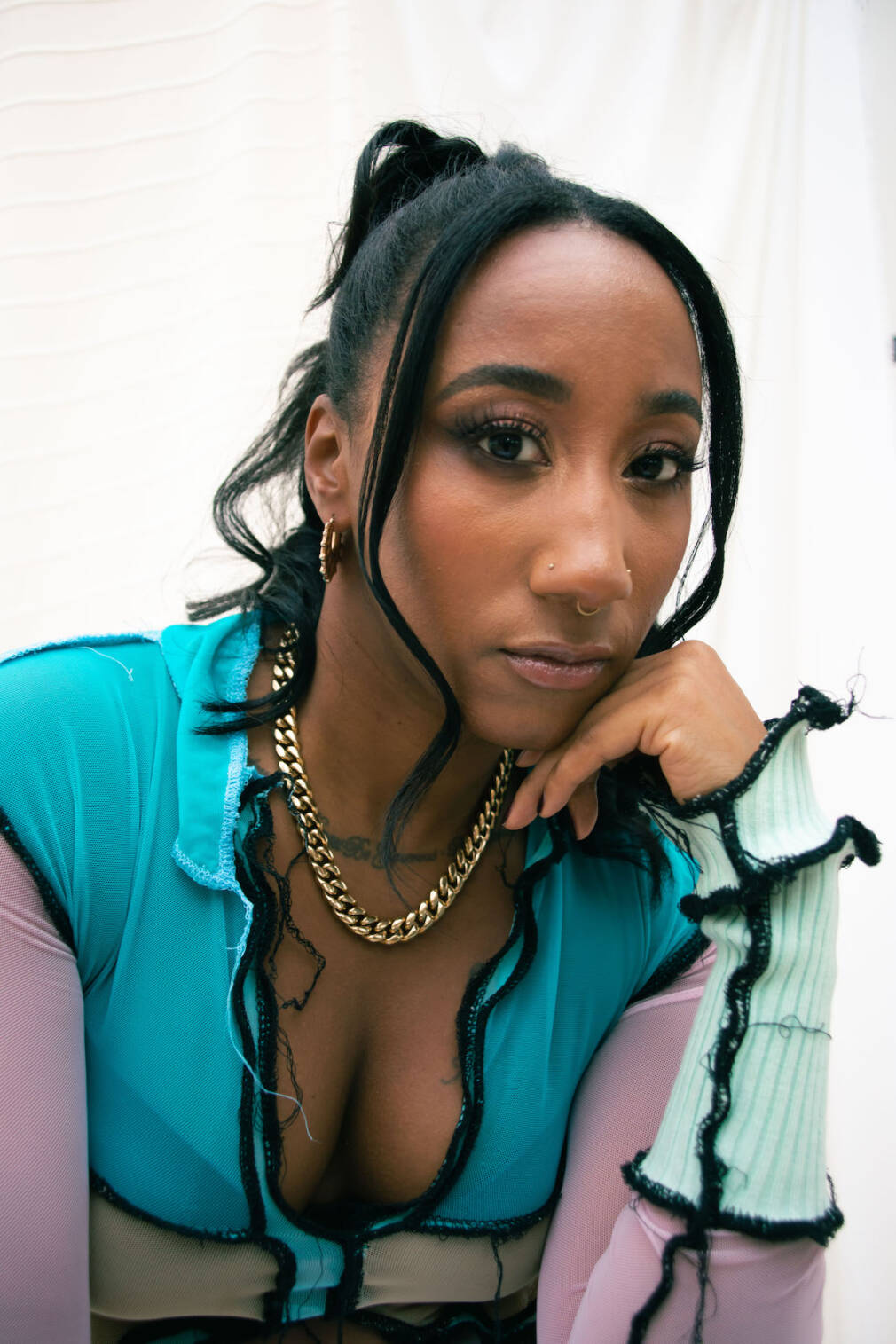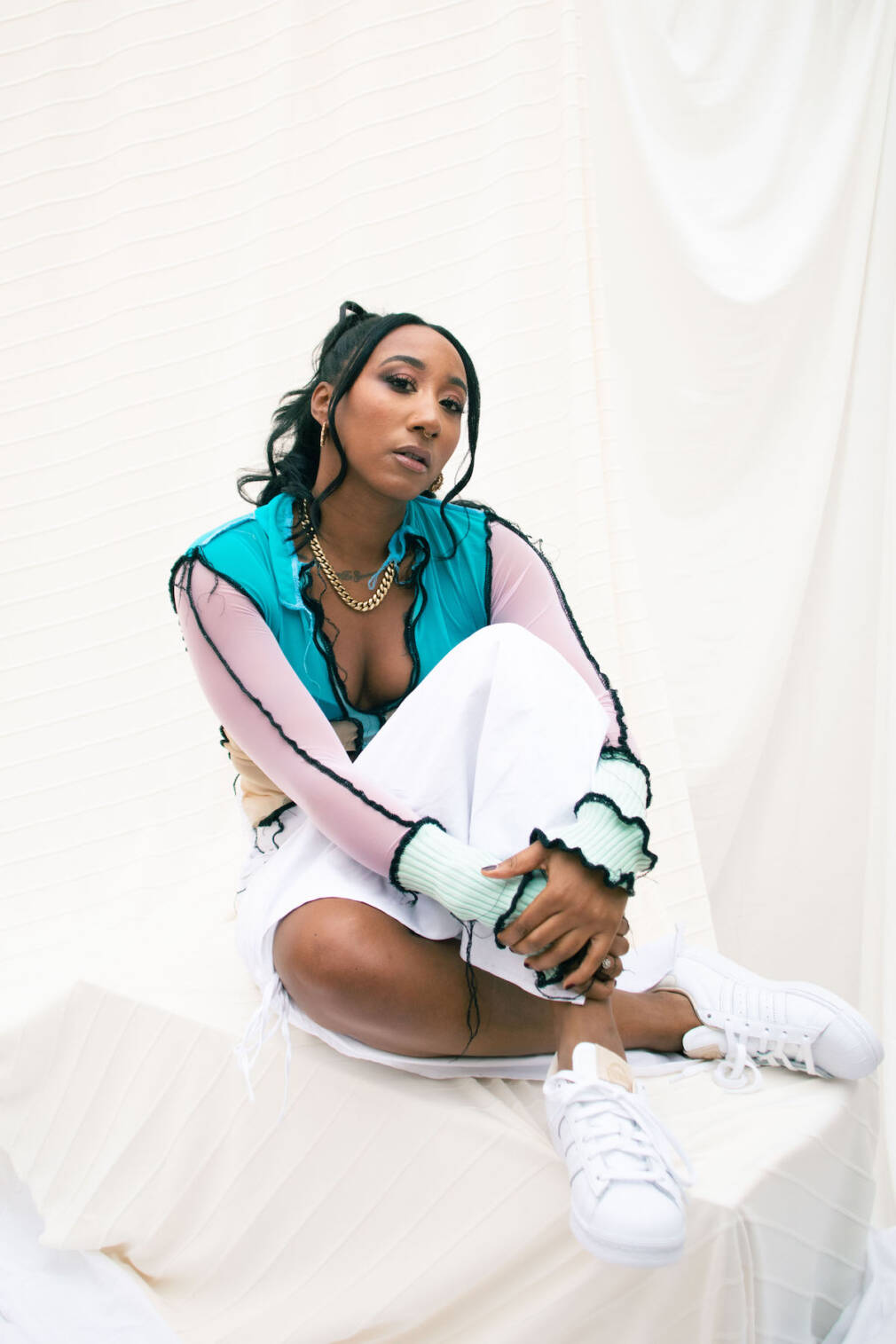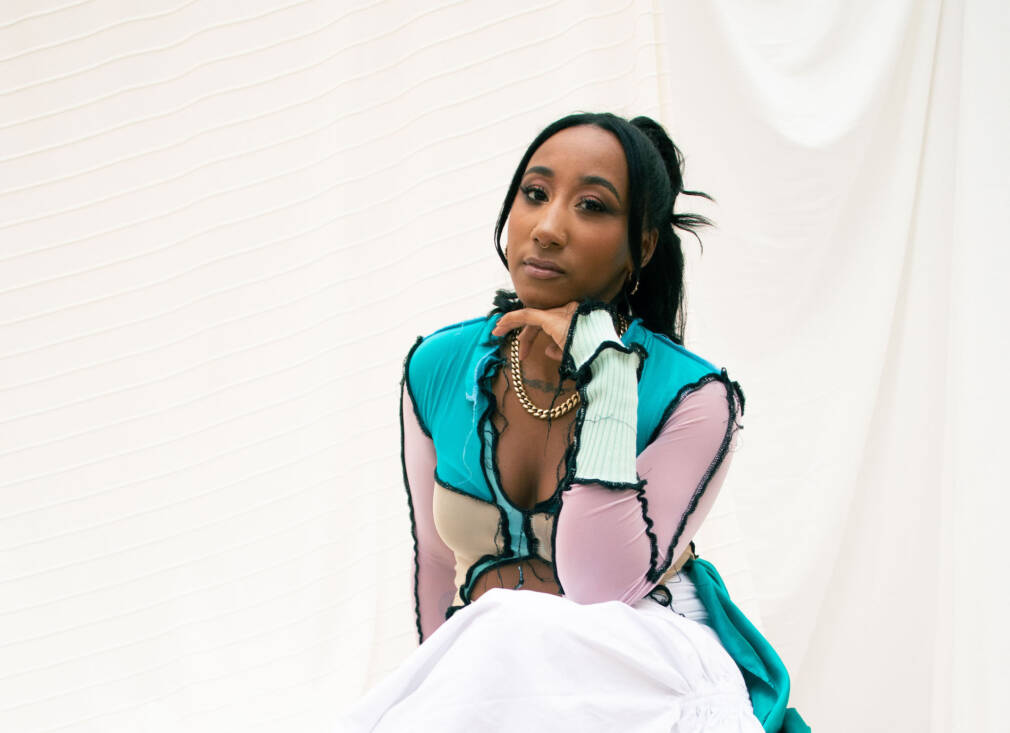You’ve probably never heard the voice of most DJs you like… but there is no chance of that happening with Jamz, who’s been super active on the airwaves – 2021 marking her 10-year anniversary on radio. She’s a broadcaster at BBC 6Music and 1Xtra, and the host of British Council’s Selector Radio. Back in May, she took to the mic once again through her DIY Handbook podcast series, where she’s been dropping knowledge drawn from challenges and life lessons that she – and her dope cast of guests – have learned along the way. And with the reopening of music venues (finally!) she’s back on the road, starting next Saturday July 17, with a party that celebrates her label Future Bounce’s debut album that just dropped. With so much energy in the sky it’s now clear that nothing can stop the Supernova…
As a Londoner, what role did African music play in your creative journey?
The Africa connection was never something that I explicitly searched out, as a teenager, but instinctively, the rhythms and the music were something I was almost instinctively drawn to. For me, it’s UK Funky that led to it. Back then you’d just hear the music in the clubs or on blank CDs. You couldn’t Shazam it, and so for me, it was all UK Funky. It’s only when I started working at the BBC that I started figuring out what was what. I still remember when I realized that this song I’d heard so many times was in fact Superman, by a South African deejay called Black Coffee (laughs).
But then, traveling as a DJ and connecting with Black people anywhere has been amazing. We’re connecting on a level that is through electronic music, but there’s this kind of unwritten element that we have in common, something we share. And while it’s formulated in so many different ways, there is a common denominator between us. I think that this is such a special bond to be able to form, with so many different communities across the world. So yeah, that’s kind of how I found my way diasporically.
And you know, even finding my place with my Jamaican heritage, it wasn’t such an obvious path. I obviously grew up hearing those dancehall and reggae records. But I wasn’t necessarily connecting these sounds to myself. Not until I actually went there. That was another turning point for me. Being in Jamaica, working there, and going to studios, meeting people. All this made me feel like “wow, this is a part of me as well”.
Have you seen a similar evolution on the UK music scene?
Definitely. In terms of influence, music from the Continent has pretty much taken over all the aspects of British Black music that’s coming out. In fact, I was listening to this podcast with Dave, talking about his project with Burna Boy, and they pulled out this statistics that up until recently, the majority of music that people were referencing was sort of Caribbean-influenced. But there’s been a shift in the movement of people, and there are actually more people from West Africa in the UK now than people with a Caribbean background. That’s had a major impact on the scene. Think about Afro Swing for example, where people have been combining hip-hop and grime but with that little afrobeats touch to it. You can hear little moments or little stabs of rhythms permeating lots of new music produced here. And while South African Gqom remained largely prevalent in the underground club scene and not necessarily connecting with the diaspora, I think now with Amapiano you have a sound that’s perfect and easy, reaching not only a Black audience but beyond. In fact, we were talking about this with Sef Kombo recently, who has been a champion of South African house in London for years. To me, if it hadn’t been for COVID last year, I know Amapiano would have been the sound of summer for us here…

You said recently, that when you landed your BBC show, you lost your DJ bookings. What happened?
There were a few different factors. People think you get on the BBC and your profile rockets, but it’s not the case anymore. If I didn’t do anything else, I don’t think many folks would know my name. I mean today, radio competes with many other platforms, and you have to be present across the board. The other thing is that as a DJ, I was evolving on the underground circuit. When people saw the BBC thing, they either thought I’d be too expensive for underground shows or simply I lost my cool for the kind of places I wanted to play (laughs). Beyond this, it’s also the kind of music I was playing on radio, which was downtempo R&B and soul, while my deejay sets are faster and dance-focused for the clubs. In a sense, people couldn’t reconcile both sides in their minds… So that period was weird because I was just starting to have regular bookings and my rep was growing bigger on this circuit, but it all kind of faded. That sucked, but I couldn’t just sit around and wait to be booked, right? What I did was I started throwing my own parties. And it’s the best thing I could have done, actually. I was booking myself alongside people I looked up to, including some of my DJ heroes, like Branko. I ran these shows consistently for two years and magically, promoters started calling me again. Running my own nights was definitely a turning point in taking back control. Ultimately, I don’t regret anything. It may have been a convoluted way to get where I am now, but I feel that this journey and different experiences come together, and they all make sense now.
You just dropped the dope Future Bounce Club Series Vol. 1 compilation. Tell us all about it!
Future Bounce is a concept I created that was essentially an outlet for club music that I loved. It was first a radio show, then a party and has now become a label, in part because I wasn’t sure about the best way to release this kind of music and finally thought I should just do it myself (laughs). We started it as a series, with a new release from some of my favorite producers every month. And the idea of the compilation was to simply bring all the work from one year together, so we have something like a class of 2020 and so on. I put my own money into it, and reached out to producers I had been playing in my DJ sets over the years and got them to join the label for a song or two. That was a really cool process, calling them up and fortunately everyone was down for it. We started it in March last year, and Hagan was the first release… I am sure with the pandemic, a lot of people would have said, “you shouldn’t release club music with no clubs open”, but we just kinda powered on. Sure it’s club music, but it doesn’t have to just live in the clubs… In the end, I am super proud of what we’ve done there… the other day I was listening to the vinyl test pressing on the big BBC sound system and it was so powerful. I was just vibing to it and ready to go out now, and that’s what I hope people feel when they listen to it. It’s like a reflection of what you would expect from a Jamz Supernova set, but through the eyes and hands of my favorite producers. I also wanted it to be diverse from a gender perspective, so it’s great to have some strong women producers on it like KG or Rose Bonica. With the label, I wanna get to a point where it’s 50/50 and it’s easy. That would be a dream… and we’ll get there!





